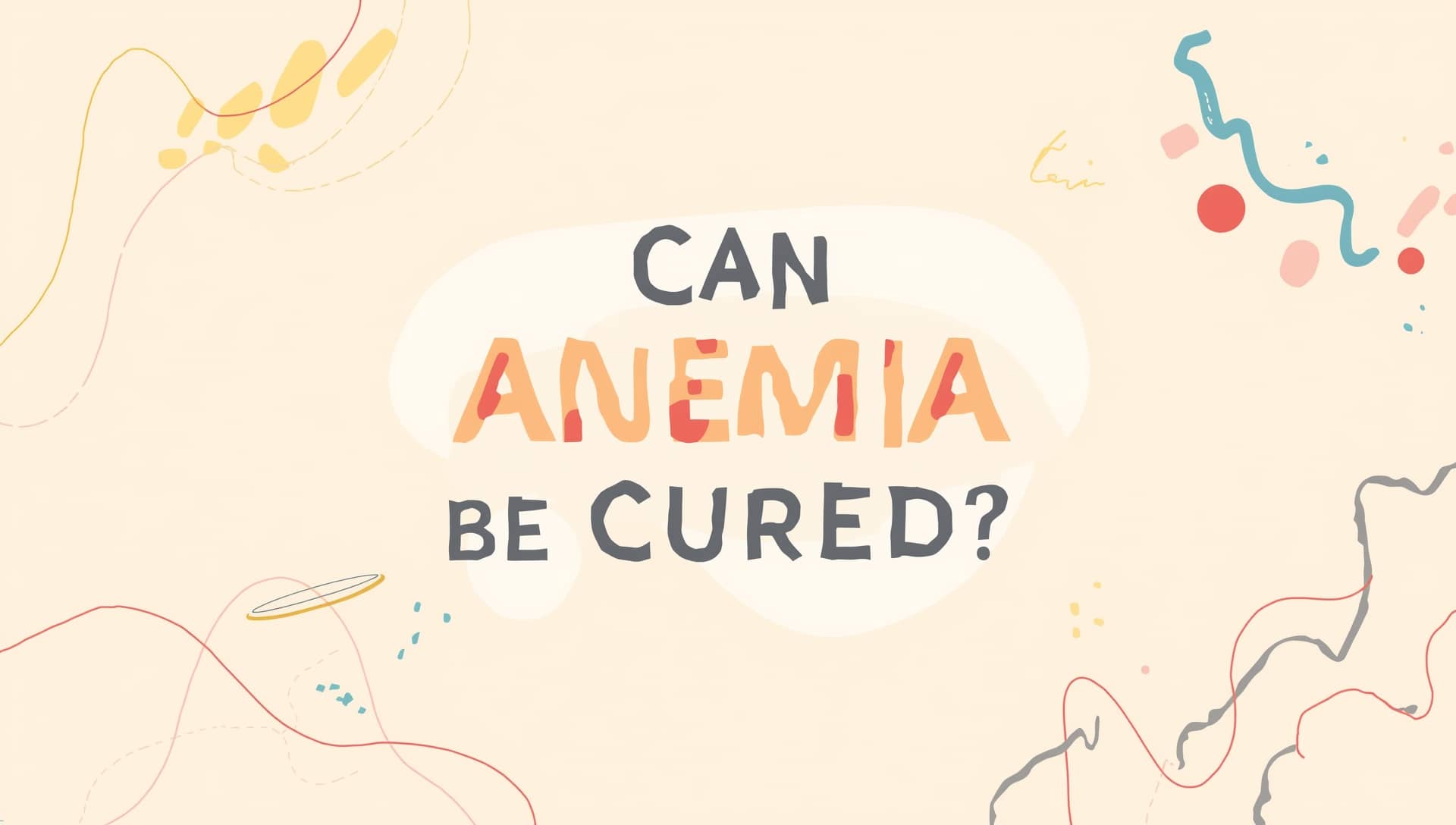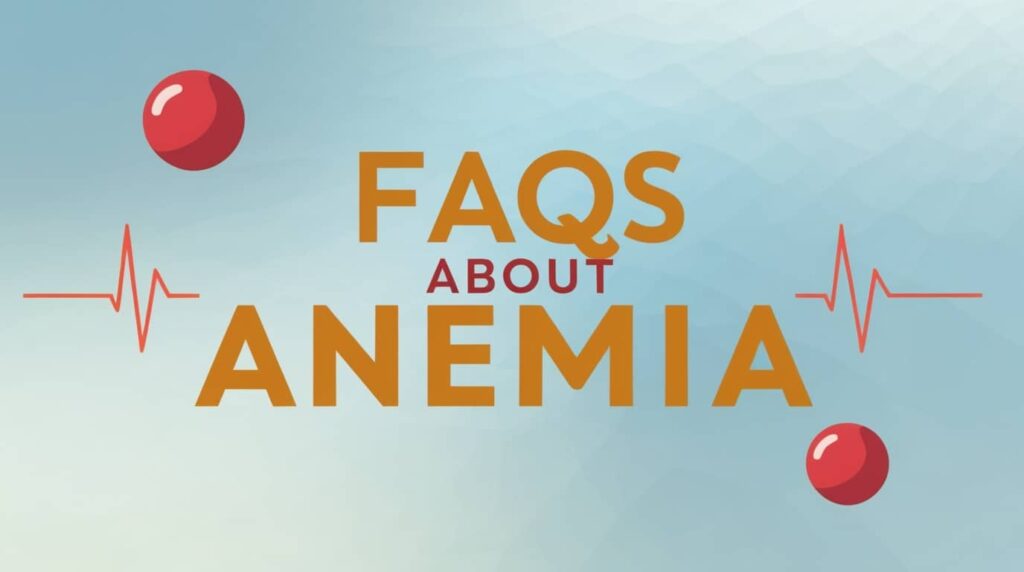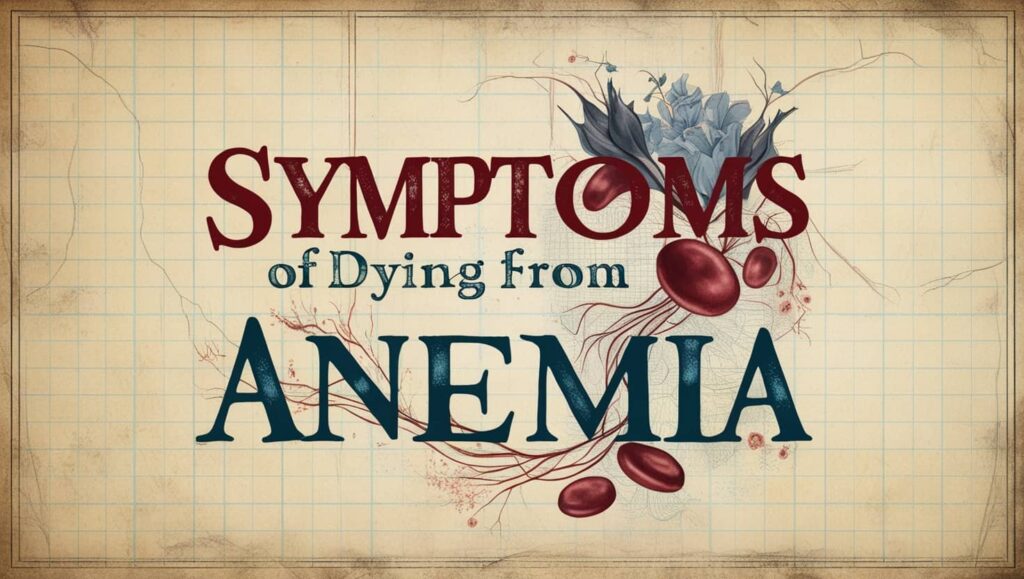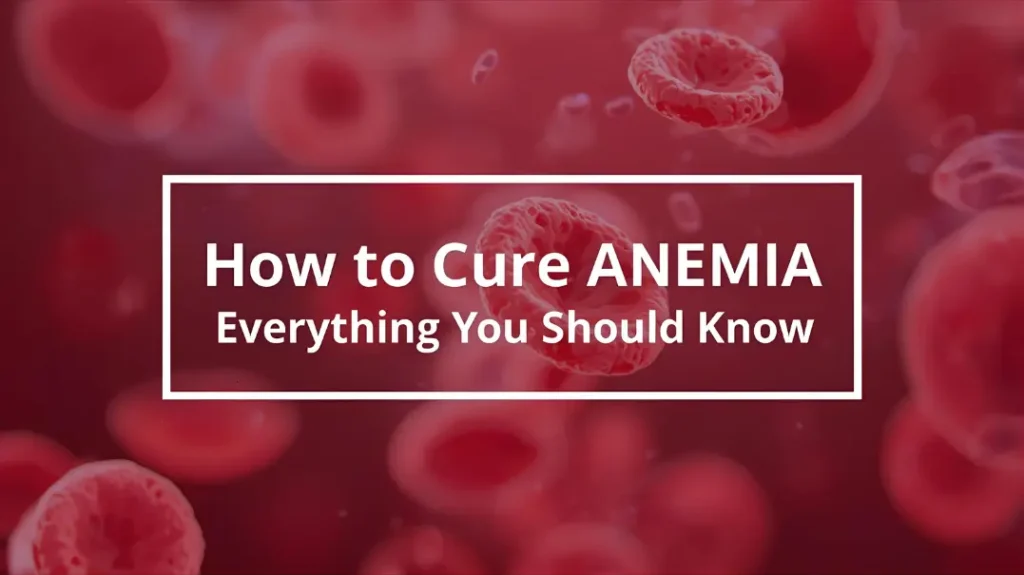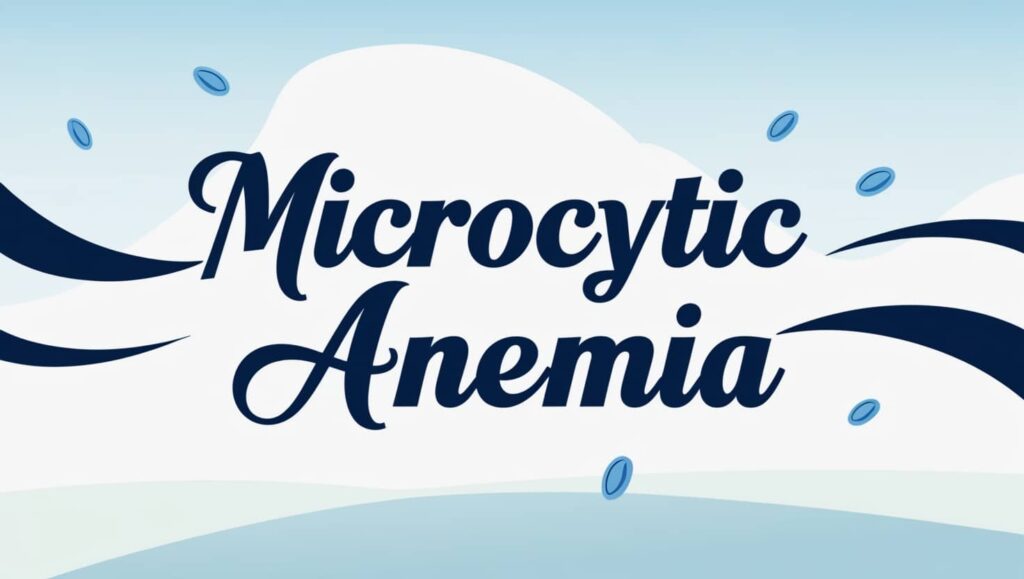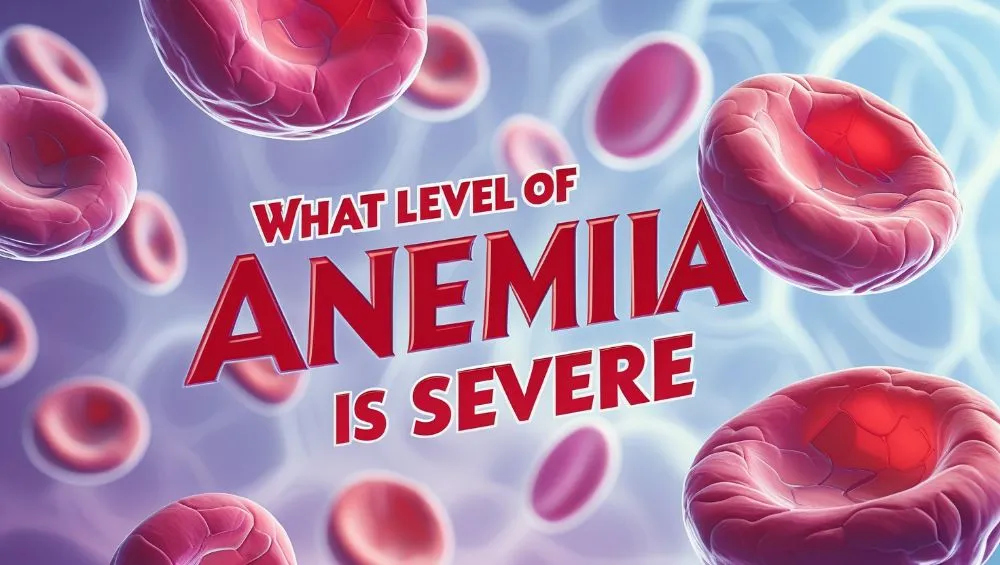Numerous people around the world struggle with anemia, but a common question for many affected individuals is, “Can anemia be cured?” If you have anemia, your body is not receiving enough oxygen-rich blood. This oxygen shortage can cause feelings such as tiredness or exhaustion. Furthermore, you may experience headaches, dizziness, difficulty breathing, or an irregular heartbeat. To learn more about anemia, its accurate diagnosis, and treatment options, continue reading this article.
What Is Anemia?
Anemia is a medical condition characterized by a lack of red blood cells or problems with the effectiveness of the existing ones. Some forms of anemia are genetic, while others can develop or be acquired during a person’s lifetime.
Anemia can impact various facets of everyday life. Certain types of this condition may present mild symptoms that can improve with suitable treatment, while others, especially those that are hereditary, may lead to enduring health problems. In severe scenarios, anemia can pose a threat to one’s life that’s why there is an urgent need to know the answer of “can anemia be cured?”.
Symptoms of anemia
The manifestations of anemia differ depending on the root cause and the severity of the condition. Initially, anemia can be mild enough not to present any symptoms. As the anemia progresses, symptoms generally begin to appear and become more severe.
If another condition causes anemia, its symptoms may overshadow those associated with anemia itself. Consequently, a test for a different condition may reveal the presence of anemia. Specific types of anemia exhibit symptoms that can indicate the underlying cause.
Typical and vague symptoms of anemia include:
- fatigue
- light-headedness or dizziness
- chilly extremities
- headaches
- shortness of breath, particularly during physical activity.
In cases of severe anemia, more serious symptoms may manifest, such as :
- pale mucous membranes (found in areas like the mouth and nose)
- light-colored skin and nail beds
- increased heart rate and rapid respiration
- feeling dizzy upon standing
- more frequent bruising.
With all these harmful symptoms, patients with anemia ask, “can anemia be cured?”.
Types of anemia
Anemia presents in various forms, each with distinct symptoms. Some prevalent types of anemia are:
- iron deficiency anemia
- vitamin B12 deficiency anemia
- aplastic anemia
- hemolytic anemia
Iron deficiency anemia
The most widespread type of anemia is iron deficiency anemia, which occurs when the body produces insufficient red blood cells (RBCs) due to inadequate iron levels. It can develop due to:
- a diet lacking in iron
- heavy menstrual bleeding
- regular blood donations
- intense physical training
- certain digestive disorders, like Crohn’s disease
- medications that can irritate the gastrointestinal lining, such as ibuprofen.
Vitamin B12 deficiency anemia
Vitamin B12 plays an essential role in the production of red blood cells. A lack of vitamin B12, whether due to inadequate consumption or ineffective absorption, can result in lower red blood cell counts.
Some signs include:
- difficulty in walking
- confusion and memory issues
- visual disturbances
- diarrhea
- Glossitis is marked by a tongue that appears smooth and red.
Aplastic anemia
It is a rare blood disorder that occurs when the bone marrow fails to produce enough new red blood cells. It is typically caused by an autoimmune condition that harms stem cells, despite having normal iron levels.
Hemolytic anemia
This form of anemia arises when RBCs are destroyed at a rate that outpaces the body’s ability to generate new ones. Various conditions can lead to this, including autoimmune diseases, infections, bone marrow issues, and inherited disorders like sickle cell disease and thalassemia.
In case of patients with genetically caused anemia, can anemia be cured permanently?
When to see the doctor
Anemia could increase your risk of having a heart attack. Seek medical help if you notice any of these signs:
- Discomfort in the chest.
- Trouble breathing or shortness of breath.
- Severe fatigue.
- Challenges with sleeping (insomnia).
- Nausea or stomach issues.
- Irregular heart rhythms.
- Excessive perspiration.
- Feeling faint, dizzy, or lightheaded.
- Feelings of anxiety or a sense of impending crisis may arise.
Diagnosis of anemia
The first step in answering “can anemia be cured?” is to diagnose it fast. Your healthcare provider will ask about your symptoms. They will perform blood tests, which include:
Complete blood count (CBC):
This examination helps healthcare providers assess all your blood cells, especially red blood cells.
Medical pathologists will analyze blood samples to measure the quantity of your red blood cells while also evaluating their shape and size.
Providers may use this test to check vitamin B12 or B9 levels.
Hemoglobin test:
Hemoglobin is the main component present in red blood cells. This test is frequently utilized to detect anemia.
Hematocrit test:
This examination measures the percentage of red blood cells present in your blood.
Peripheral blood smear:
Healthcare providers examine your red blood cells under a microscope to assess their size and shape.
Reticulocyte count:
Reticulocytes are immature red blood cells. This test assesses whether your bone marrow is producing a sufficient amount of healthy red blood cells.
Can anemia be cured?
Certainly, most cases of anemia can be treated effectively. It is a temporary condition that can be managed through dietary changes or the use of supplements.
While it’s rare to require more intensive treatments for anemia, there are situations where additional care may be necessary.
The approach often depends on the type and severity of your anemia. In some cases, increasing your iron intake can resolve anemia. Your healthcare provider might explore the following alternatives:
Supplements
You might be advised to take supplements for iron, folic acid, or vitamin B12.
Medications
Treatments for anemia may include erythropoietin, which assists your bone marrow in producing more blood stem cells.
If your anemia stems from an immune-related disorder, immunosuppressants might be utilized.
Procedures
Based on individual circumstances, doctor may suggest blood transfusions to replenish red blood cells or a stem cell (bone marrow) transplant to replace damaged blood stem cells.
In some cases, surgery might be necessary to address internal bleeding contributing to anemia.
Diet
Consuming a diet rich in iron that includes meats, eggs, beans, fortified foods, nuts, seafood, peas, and leafy green vegetables can help enhance your iron levels.
FAQs
Can anemia be cured permanently?
Indeed, certain types of anemia can be permanently resolved, but it largely depends on the specific cause and nature of the anemia.
What foods are beneficial for anemia?
It varies based on the type of anemia present. For anemia related to a lack of nutrients, like iron deficiency anemia, incorporate iron-rich foods, such as meats or leafy vegetables.
In the end, the answer to “can anemia be cured?” varies. While nutritional types are often reversible, inherited or chronic forms may only be managed. With early diagnosis and proper treatment, many patients can restore their health or control symptoms effectively.
Reference
Lam, P. (2022, July 30). Anemia: Symptoms, types, treatment, causes, diet, and more. Retrieved from www.medicalnewstoday.com website: https://www.medicalnewstoday.com/articles/158800#types
National Heart, Lung, and Blood Institute. (2022a, March 24). Anemia – Diagnosis | NHLBI, NIH. Retrieved from www.nhlbi.nih.gov website: https://www.nhlbi.nih.gov/health/anemia/diagnosis
National Heart, Lung, and Blood Institute. (2022b, March 24). Anemia – What Is Anemia? Retrieved from www.nhlbi.nih.gov website: https://www.nhlbi.nih.gov/health/anemia
Srakocic, S., & Brocato, C. (2023, April 20). What Are The Different Types of Anemia? Retrieved from Healthline website: https://www.healthline.com/health/anemia/types-of-anemia

